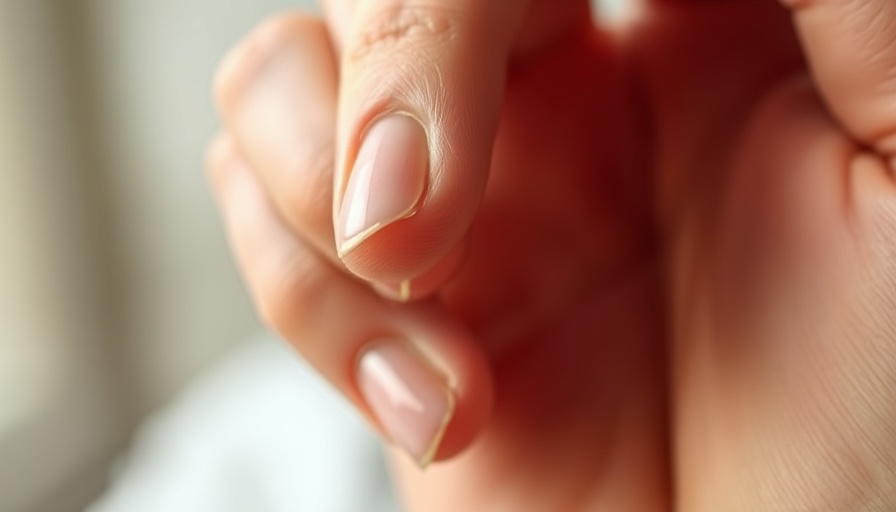
Understanding Skin Picking: A Hidden Struggle
Skin picking, or dermatillomania, is often brushed aside as a mere bad habit, but for many, it’s an overwhelming compulsion that intersects with mental health challenges. This behavior can lead to visible skin damage, emotional distress, and even anxiety. Understanding skin picking requires a look at its complexities and the context in which it occurs.
In 'The truth about skin picking', the discussion dives into the emotional impacts of skin-related compulsions, prompting a deeper exploration of the ongoing challenges and recovery options for those affected.
The Emotional Impact of Skin Picking
Many individuals who struggle with skin picking experience shame and embarrassment. The compulsive nature of the behavior can stem from various sources, including stress, boredom, and anxiety. Recognizing that skin picking is not simply a matter of willpower but often involves emotional triggers is crucial for anyone affected by this condition. People can feel isolated, thinking they are alone in their struggles. It’s important to highlight that recovery is possible and seeking help is a strong first step.
Identifying Triggers and Seeking Solutions
Just like physical pain, understanding the root causes of skin picking and identifying triggers can help in developing effective coping mechanisms. Keeping a journal, noting when and where skin picking occurs, can unveil patterns that facilitate better management strategies. Those looking for help can consider approaches such as therapy, mindfulness techniques, or support groups. Innovations in online therapy offer hope and accessibility, making it easier to find the support needed.
Common Misconceptions About Skin Picking
One prevalent misconception is that skin picking is merely a cosmetic issue. However, it often reflects deeper psychological distress. This behavior frequently coexists with disorders like OCD, anxiety, or depression, and understanding this can help eliminate stigma and encourage compassionate conversations. Many people are unaware of how common skin picking is, thus reinforcing silence around the topic.
Future Insights: The Path to Recovery
As mental health awareness continues to grow, there is hope for better treatment options for compulsive skin picking. Researchers are diving deeper into brain function and behavior to uncover new treatment avenues. While there might still be a long way to go, understanding skin picking and its impact on mental health opens the door for better interventions. Support systems and educational resources can foster a stronger sense of community among those affected.
If you or someone you know is struggling with skin picking, consider reaching out to a healthcare provider or mental health specialist. Just as you might seek out a podiatrist for foot care or advice, prioritizing mental health is equally important. Recovery is a journey, and recognizing the need for help is the first step toward healing.
 Add Row
Add Row  Add
Add 




Write A Comment